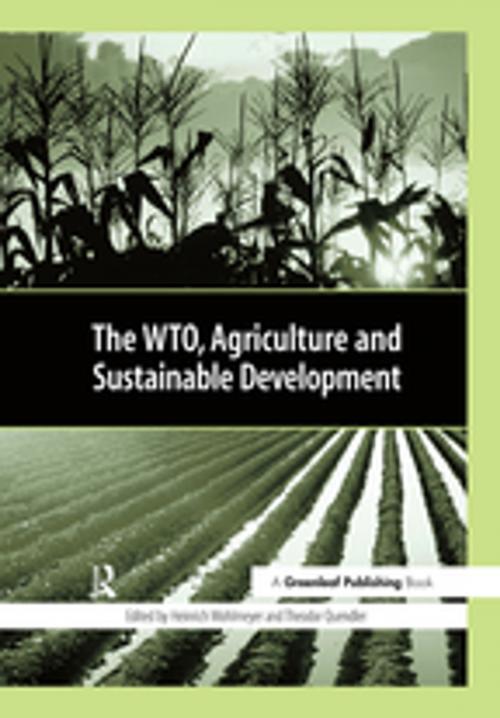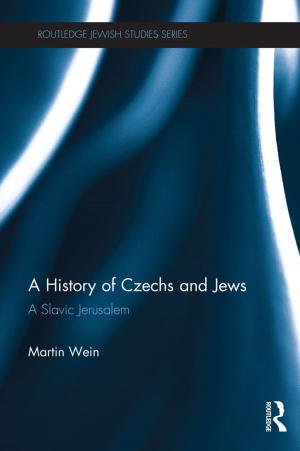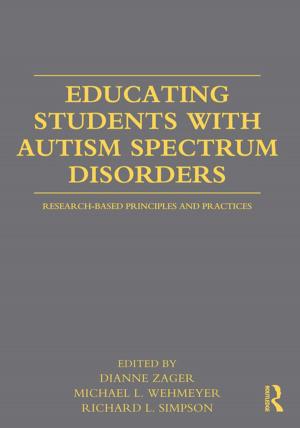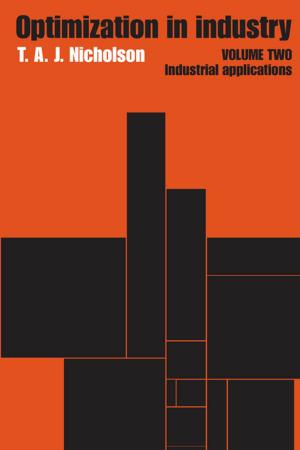The WTO, Agriculture and Sustainable Development
Business & Finance, Economics, International, Business Reference, Business Ethics| Author: | ISBN: | 9781351282109 | |
| Publisher: | Taylor and Francis | Publication: | September 8, 2017 |
| Imprint: | Routledge | Language: | English |
| Author: | |
| ISBN: | 9781351282109 |
| Publisher: | Taylor and Francis |
| Publication: | September 8, 2017 |
| Imprint: | Routledge |
| Language: | English |
Despite the Doha declaration of November 2001, the failure to start a new round of global trade negotiations at Seattle in December 1999 and the hostility of protesters to the trade liberalization process and growing global economic and social disparities was a wake-up call for the World Trade Organisation (WTO). The ambitious goal of this ground-breaking book is to identify the strengths and weaknesses of liberalized world trade, in particular in the agricultural sector, and to investigate to what extent the current WTO agreements provide the necessary fail-safe devices to react to trade-related negative impacts on sustainability, environmental protection and food security. The background and interrelationship between the WTO, the tenets of sustainable development and the unique features of the agriculture and forestry sectors are explored, and conclusions regarding the deficits of the world trade system and its conflicts with basic societal goals – such as sustainability – are drawn. Agriculture and forestry have a particular affinity with what the authors call "strong sustainability" and are to be among the major agenda items in forthcoming WTO negotiations. The book proposes that sustainable agricultural production techniques such as integrated and organic farming provide a series of related services to community and environment which could be severely prejudiced by wholesale trade liberalization and the imposition of the large-scale production methods of the mega-trade giants of the USA and Europe. And yet the concept of sustainability is referred to only tangentially in the existing WTO agenda. The WTO, Agriculture and Sustainable Development argues that, without a formal recognition of this failing, the premise that free trade is inherently advantageous for all countries is a falsehood. Further, unfettered liberalization is unsustainable and a social and environmental multilateral framework must be agreed to reinterpret or adapt a host of WTO regulations that are at odds with sustainable development. The core problem is that, under the current system, import duties can only be differentiated by direct goods and services and not by their means of production – sustainable or otherwise. Therefore, a range of environmental policy measures in the agricultural sector, such as the consideration of product life-cycles, the internalization of external costs and a coupling of trade liberalization with ecological obligations are proposed by the authors. In addition, they argue that unsustainable economic short-termism must be curbed and the use of the stick of trade sanctions and the carrot of financial benefits for good environmental performance be permitted to promote sustainable agricultural practices. This book will contribute greatly in addressing the lack of basic theoretical arguments at the intersection between trade and sustainable development – a failing that has already been bemoaned by trade policy-makers. It is highly recommended reading for all those involved or interested in the WTO negotiations, whether from multilateral organizations, governments, industry or civil society.
Despite the Doha declaration of November 2001, the failure to start a new round of global trade negotiations at Seattle in December 1999 and the hostility of protesters to the trade liberalization process and growing global economic and social disparities was a wake-up call for the World Trade Organisation (WTO). The ambitious goal of this ground-breaking book is to identify the strengths and weaknesses of liberalized world trade, in particular in the agricultural sector, and to investigate to what extent the current WTO agreements provide the necessary fail-safe devices to react to trade-related negative impacts on sustainability, environmental protection and food security. The background and interrelationship between the WTO, the tenets of sustainable development and the unique features of the agriculture and forestry sectors are explored, and conclusions regarding the deficits of the world trade system and its conflicts with basic societal goals – such as sustainability – are drawn. Agriculture and forestry have a particular affinity with what the authors call "strong sustainability" and are to be among the major agenda items in forthcoming WTO negotiations. The book proposes that sustainable agricultural production techniques such as integrated and organic farming provide a series of related services to community and environment which could be severely prejudiced by wholesale trade liberalization and the imposition of the large-scale production methods of the mega-trade giants of the USA and Europe. And yet the concept of sustainability is referred to only tangentially in the existing WTO agenda. The WTO, Agriculture and Sustainable Development argues that, without a formal recognition of this failing, the premise that free trade is inherently advantageous for all countries is a falsehood. Further, unfettered liberalization is unsustainable and a social and environmental multilateral framework must be agreed to reinterpret or adapt a host of WTO regulations that are at odds with sustainable development. The core problem is that, under the current system, import duties can only be differentiated by direct goods and services and not by their means of production – sustainable or otherwise. Therefore, a range of environmental policy measures in the agricultural sector, such as the consideration of product life-cycles, the internalization of external costs and a coupling of trade liberalization with ecological obligations are proposed by the authors. In addition, they argue that unsustainable economic short-termism must be curbed and the use of the stick of trade sanctions and the carrot of financial benefits for good environmental performance be permitted to promote sustainable agricultural practices. This book will contribute greatly in addressing the lack of basic theoretical arguments at the intersection between trade and sustainable development – a failing that has already been bemoaned by trade policy-makers. It is highly recommended reading for all those involved or interested in the WTO negotiations, whether from multilateral organizations, governments, industry or civil society.















